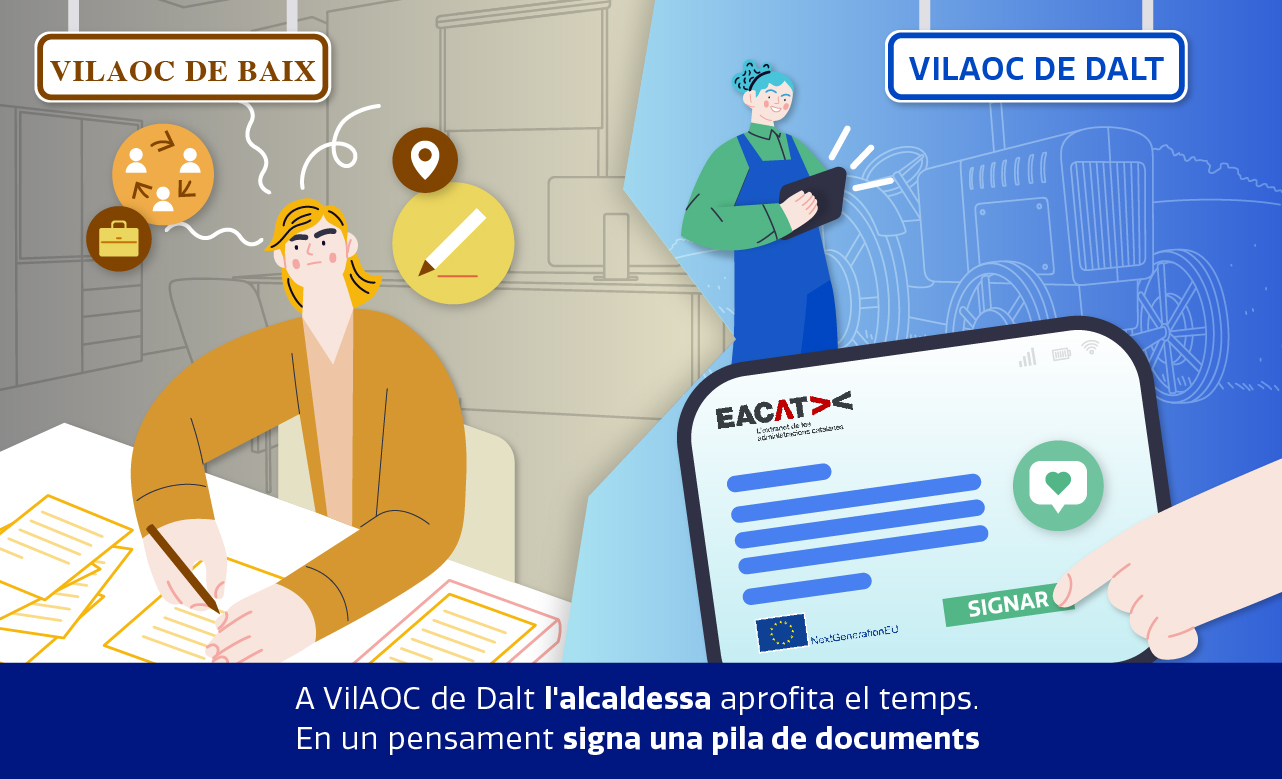- Digital identity
- Identity and digital signature
The AOC presents the challenges and opportunities of digital identity in Europe at the SOCINFO conference

The implementation of the electronic signature in the management of public workers, companies and citizens has ensured the integrity, authenticity, confidentiality and non-repudiation of signed documents as well as the identity of the person signing. In this way, the validity of a paper-signed document is equated with that of an electronically signed document.
Being able to sign documents electronically brings a number of advantages that go beyond the equating between handwritten and digital signature:
In 2011, the AOC introduced the electronic signature for administration staff. Since then, resolutions, decrees and any type of administrative document can be signed from anywhere and at any time. Elected officials no longer have to go to the town hall to sign the permanent folder of documents that was always on the table.
The AOC manages, every year, 140 million electronic signatures generated by the Catalan administrations.
Txell's time is golden
Balbina and Txell are the mayors of VilAOC de Baix and VilAOC de Dalt.
At VilAOC de Baix, Balbina goes to the town hall to sign all the resolutions, decrees and invoices by hand. On the other hand, Txell signs with her mobile phone, from where she wants and when she wants and invests the time saved in other actions to improve her municipality.
# 20AnysAOC # FemPaísDigital